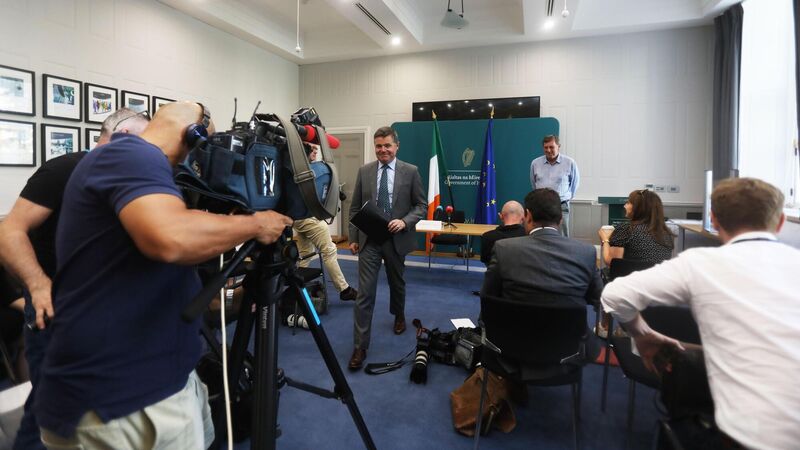Reduced Vat for hospitality of 9% still slated to end in February, tax documents show

Finance Minister Paschal Donohoe speaking to media in the Department of Finance following the publication of the Tax Strategy Group papers. Picture: Leah Farrell / RollingNews.ie
The Department of Finance plans to end the reduced rate of Vat of 9% for tourism and hospitality on its expiry date next February, according to research papers released ahead of the budget.
The hospitality Vat rate had been reduced from 13.5% to 9% and was subsequently extended by a further six months to take account of the inflation crisis facing many businesses still reeling from the shock of the Covid-19 pandemic.











